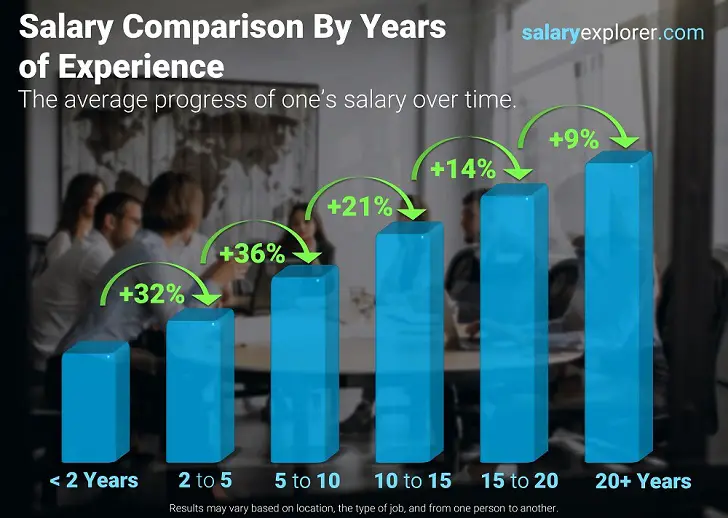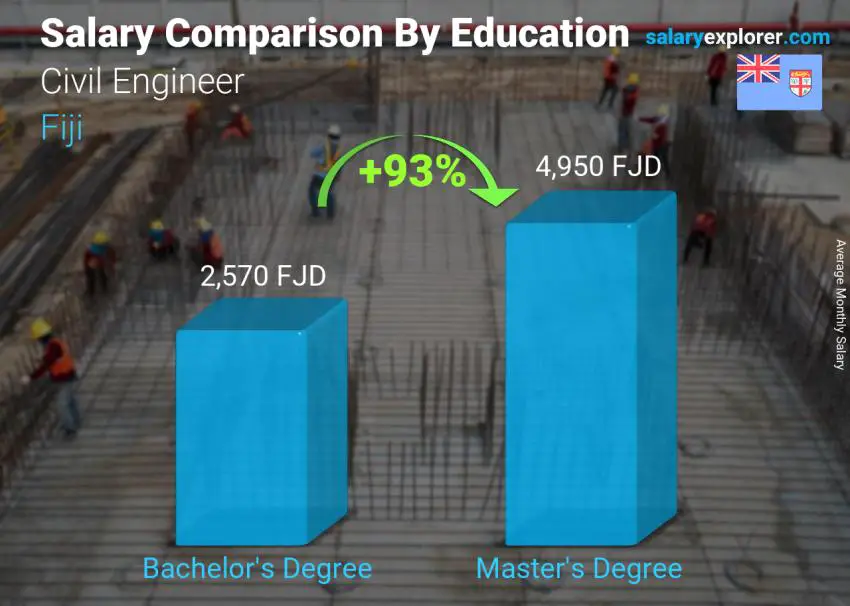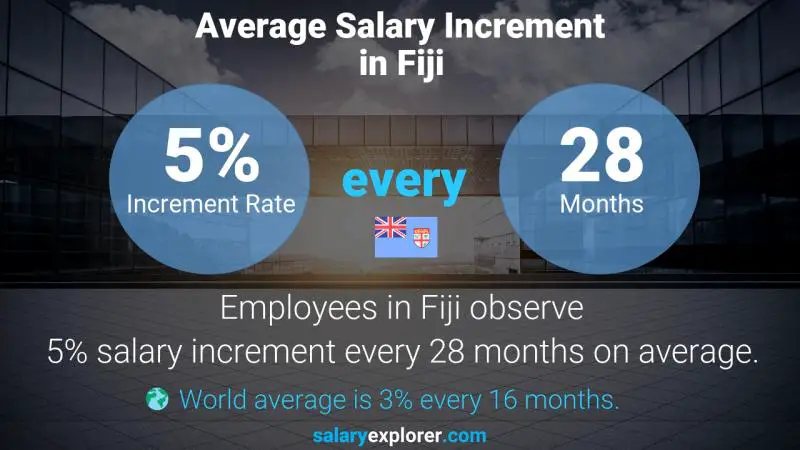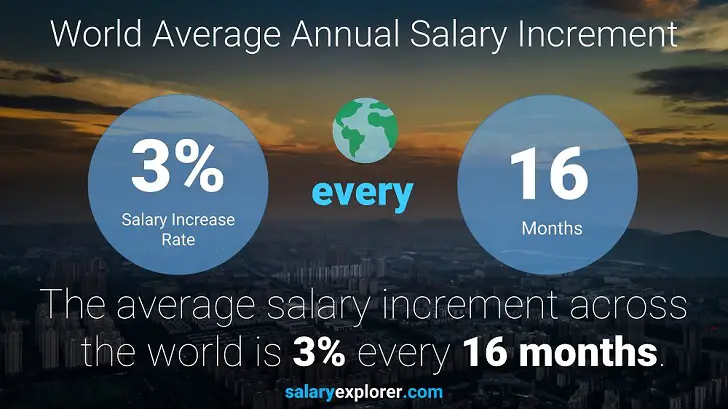Civil Engineer Average Salary in Fiji 2024
How much money does a person working as Civil Engineer make in Fiji?

LOW
1,940
FJD AVERAGE
4,230
FJD HIGH
6,720
FJD
A person working as Civil Engineer in Fiji typically earns around 4,230 FJD. Salaries range from 1,940 FJD (lowest) to 6,720 FJD (highest).
Salary Variance
This is the average salary including housing, transport, and other benefits. Civil Engineer salaries in Fiji vary drastically based on experience, skills, gender, or location. Below you will find a detailed breakdown based on many different criteria.
Civil Engineer Pay Scale and Salaries in Fiji

Salary Structure and Pay Scale Comparison
4,010 FJD or more
3,510 to 4,010 FJD
2,420 FJD or less
2,420 to 3,510 FJD
 1,940 FJD |
 4,040 FJD |
 6,720 FJD |
Median Salary, maximum and minimum salary, minimum wage, starting salary, and the salary range
Salary Range, Minimum Wage, and Starting Salary
Salaries for the position Civil Engineer in Fiji range from 1,940 FJD (starting salary) to 6,720 FJD (maximum salary). It should be noted that the given figure is not the legally mandated minimum wage; rather, it represents the lowest figure reported in a salary survey that included thousands of participants and professionals from all regions of the country.
Median Salary
With a median salary of 4,040 FJD, half of the professionals who work as Civil Engineer in Fiji earn less than this amount, and the other half earn more. The median salary denotes the middle value of salaries. Ideally, you would want to belong to the group earning more than the median salary, located on the right side of the salary distribution graph.
Percentiles and Salary Scale
The median is closely associated with two other values known as the 25th and 75th percentiles. By examining the salary distribution chart, it can be determined that 25% of professionals employed as Civil Engineer in Fiji earn less than 3,260 FJD, while 75% earn more. Similarly, the chart shows that 75% earn less than 4,660 FJD while 25% earn more.
Pay Scale Structure
To provide a better understanding of expected salaries, we categorized the frequently occurring salaries into different ranges. This approach provides a more precise representation of salary distribution for the job title Civil Engineer in Fiji compared to simply calculating the average. The majority of reported salaries, approximately 65%, fall within the range of 2,420 FJD to 3,510 FJD. About 20% of salaries are below the 2,420 FJD mark, while 10% fall within the range of 3,510 FJD to 4,010 FJD. Only 5% of individuals have salaries exceeding 4,010 FJD.
Salary Comparison by Years of Experience / Civil Engineer / Fiji
How do experience and age affect pay?
| 0 - 2 Years | 2,210 FJD | |
| 2 - 5 Years | +34% | 2,950 FJD |
| 5 - 10 Years | +48% | 4,360 FJD |
| 10 - 15 Years | +22% | 5,310 FJD |
| 15 - 20 Years | +9% | 5,790 FJD |
| 20+ Years | +8% | 6,270 FJD |

The experience level is the most important factor in determining the salary. Naturally, the more years of experience the higher the wage. We broke down salaries by experience level for people working as Civil Engineer and this is what we found.
Employees with less than two years of experience earn approximately 2,210 FJD.
While someone with an experience level between two and five years is expected to earn 2,950 FJD, 34% more than someone with less than two year's experience.
Moving forward, an experience level between five and ten years lands a salary of 4,360 FJD, 48% more than someone with two to five years of experience.
Additionally, professionals whose expertise span anywhere between ten and fifteen years get a salary equivalent to 5,310 FJD, 22% more than someone with five to ten years of experience.
If the experience level is between fifteen and twenty years, then the expected wage is 5,790 FJD, 9% more than someone with ten to fifteen years of experience.
Lastly, employees with more than twenty years of professional experience get a salary of 6,270 FJD, 8% more than people with fifteen to twenty years of experience.
Typical Salary Progress for Most Careers

Salary Comparison By Education / Civil Engineer / Fiji
How do education levels affect salaries?
Displayed below is the average salary variance between different education levels of professionals working as Civil Engineer.
| Bachelor's Degree | 2,570 FJD | |
| Master's Degree | +93% | 4,950 FJD |

We all know that higher education equals a bigger salary, but how much more money can a degree add to your income? We broke down salaries by education level for the position Civil Engineer in order to make a comparison.
Level 1: Bachelor's Degree
Employees at this education level have an average salary of 2,570 FJD.
Level 2: Master's Degree
At this level, the average salary becomes 4,950 FJD, 93% more than the previous level.
Is a Master's degree or an MBA worth it? Should you pursue higher education?
A Master's degree program or any post-graduate program in Fiji costs anywhere from 24,100 FJD to 72,400 FJD and lasts approximately two years. That is quite an investment.
You can't really expect any salary increases during the study period, assuming you already have a job. In most cases, a salary review is conducted once education is completed and the degree has been attained.
Many people pursue higher education as a tactic to switch to a higher-paying job. The numbers seem to support the theory. The average increase in compensation while changing jobs is approximately 10% more than the customary salary increment.
If you can afford the costs of higher education, the return on investment is definitely worth it. You should be able to recover the costs in roughly a year or so.
Typical Salary Difference by Education for Most Careers

Salary and Compensation Comparison By Gender / Civil Engineer / Fiji

Though gender should not have an effect on pay, in reality, it does. So who gets paid more: men or women? For the people who work as Civil Engineer in Fiji, the average difference between the salary of male and female employees is 11%.
| Male | 4,440 FJD | |
| Female | -10% | 4,010 FJD |
Salary Comparison By Gender in Fiji for all Careers

Average Annual Salary Increment Percentage / Civil Engineer / Fiji
How much are annual salary increments in Fiji for individuals working as Civil Engineer? How often do employees get salary raises?
Individuals working as Civil Engineer in Fiji are likely to observe a salary increase of approximately 6% every 30 months. The national average annual increment for all professions combined is 5% granted to employees every 28 months.

Fiji / All Professions

The term Annual Salary Increase usually refers to the increase in 12 calendar month period, but because it is rare that people get their salaries reviewed exactly on the one-year mark, it is more meaningful to know the frequency and the rate at the time of the increase.
How to calculate the salary increment percentage?
The annual salary Increase in a calendar year (12 months) can be easily calculated as follows: Annual Salary Increase = Increase Rate x 12 / Increase Frequency
Worldwide Salary Raises: All Countries and All Jobs

Salary Packages and Schemes
Not all compensation increases are reflected directly in the salary. Some companies offer upgraded packages to their staff instead of cash money. The figures displayed here account only for direct increments to the base salary.
Bonus and Incentive Rates / Civil Engineer / Fiji
How much and how often are bonuses being awarded? Share This Chart Tweet Get Chart Linkhttp://www.salaryexplorer.com/charts/fiji/construction-building-installation/civil-engineer/annual-salary-bonus-rate-fiji-civil-engineer.jpg
Share This Chart Tweet Get Chart Linkhttp://www.salaryexplorer.com/charts/fiji/construction-building-installation/civil-engineer/annual-salary-bonus-rate-fiji-civil-engineer.jpg
84% of surveyed staff reported that they haven't received any bonuses or incentives in the previous year while 16% said that they received at least one form of monetary bonus.
Those who got bonuses reported rates ranging from 0% to 4% of their annual salary.
| Received Bonus | 16% | |
| No Bonus | 84% |
Types of Bonuses Considered
Individual Performance-Based BonusesThe most standard form of bonus, where the employee is awarded based on their exceptional performance.
Company Performance BonusesOccasionally, some companies like to celebrate excess earnings and profits with their staff collectively in the form of bonuses that are granted to everyone. The amount of the bonus will probably be different from person to person depending on their role within the organization.
Goal-Based BonusesGranted upon achieving an important goal or milestone.
Holiday / End of Year BonusesThese types of bonuses are given without a reason and usually resemble an appreciation token.
Bonuses Are Not Commissions!
People tend to confuse bonuses with commissions. A commission is a prefixed rate at which someone gets paid for items sold or deals completed while a bonus is in most cases arbitrary and unplanned.
What makes a position worthy of good bonuses and a high salary?
The main two types of jobs | |
| Revenue Generators | Supporting Cast |
Employees that are directly involved in generating revenue or profit for the organization. Their field of expertise usually matches the type of business. | Employees that support and facilitate the work of revenue generators. Their expertise is usually different from that of the core business operations. |
Example: | Example: |
Revenue generators usually get more and higher bonuses, higher salaries, and more frequent salary increments. The reason is quite simple: it is easier to quantify your value to the company in monetary terms when you participate in revenue generation.
Bonus Comparison by Seniority Level
Top management personnel and senior employees naturally exhibit higher bonus rates and frequencies than juniors. This is very predictable due to the inherent responsibilities of being higher in the hierarchy. People in top positions can easily get double or triple bonus rates than employees down the pyramid.
Average Hourly Wage / Civil Engineer / Fiji
 24 FJD per hour
24 FJD per hourThe average hourly wage (pay per hour) for individuals working as Civil Engineer in Fiji is 24 FJD.This is the rate they get paid for every worked hour.
About The Hourly Pay Rate
The hourly wage is the salary paid in one worked hour. Usually, jobs are classified into two categories: salaried jobs and hourly jobs. Salaried jobs pay a fixed amount regardless of the hours worked. Hourly jobs pay per worked hour. To convert salary into hourly wage the above formula is used (assuming 5 working days in a week and 8 working hours per day which is the standard for most jobs). The hourly wage calculation may differ slightly depending on the worked hours per week and the annual vacation allowance. The figures mentioned above are good approximations and are considered to be the standard. One major difference between salaried employees and hourly paid employees is overtime eligibility. Salaried employees are usually exempt from overtime as opposed to hourly paid staff.
What is the minimum hourly rate of pay?
The minimum pay rate per hour for people working as Civil Engineer in Fiji is 11 FJD. This is the minimum as per the gathered data in the salary survey not the minimum hourly rate mandated by law.
Salary comparison with similar jobs
| Job Title | Average Salary |
| Construction / Building / Installation |  -100% -100% | |
| 3D Printing Construction Technician | 3,140 FJD |  -26% -26% |
| Adjudicator | 1,870 FJD |  -56% -56% |
| Assembler | 1,490 FJD |  -65% -65% |
| Boat Builder and Shipwright | 2,240 FJD |  -47% -47% |
| Bricklayer | 1,240 FJD |  -71% -71% |
| Building Administrator | 1,890 FJD |  -55% -55% |
| Building Automation Engineer | 4,120 FJD |  -3% -3% |
| Building Contracts Manager | 6,800 FJD |  +61% +61% |
| Building Information Modeling Manager | 5,810 FJD |  +37% +37% |
| Building Inspector | 1,870 FJD |  -56% -56% |
| Building Monitor | 1,410 FJD |  -67% -67% |
| Building Sales Manager | 6,090 FJD |  +44% +44% |
| Building Systems Integration Specialist | 3,980 FJD |  -6% -6% |
| Cabinetmaker | 1,620 FJD |  -62% -62% |
| Carpenter | 1,750 FJD |  -59% -59% |
| Civil Engineer | 4,230 FJD |  +0% +0% |
| Civil Technician | 2,270 FJD |  -46% -46% |
| Concreter | 1,430 FJD |  -66% -66% |
| Construction and Building Inspector | 1,800 FJD |  -57% -57% |
| Construction and Maintenance Manager | 3,540 FJD |  -16% -16% |
| Construction Assistant | 1,780 FJD |  -58% -58% |
| Construction Coordinator | 2,500 FJD |  -41% -41% |
| Construction Data Analyst | 3,920 FJD |  -7% -7% |
| Construction Estimator | 2,690 FJD |  -36% -36% |
| Construction Field Engineer | 3,720 FJD |  -12% -12% |
| Construction General Manager | 8,230 FJD |  +95% +95% |
| Construction Inventory Officer | 1,450 FJD |  -66% -66% |
| Construction Manager | 8,320 FJD |  +97% +97% |
| Construction Operations Manager | 7,630 FJD |  +81% +81% |
| Construction Project Controls Manager | 5,960 FJD |  +41% +41% |
| Construction Project Coordinator | 4,340 FJD |  +3% +3% |
| Construction Project Engineer | 4,350 FJD |  +3% +3% |
| Construction Project Manager | 7,380 FJD |  +75% +75% |
| Construction Project Planner | 4,190 FJD |  -1% -1% |
| Construction Quality Control Manager | 5,890 FJD |  +39% +39% |
| Construction Robotics Engineer | 4,470 FJD |  +6% +6% |
| Construction Safety Officer | 2,690 FJD |  -36% -36% |
| Construction Superintendent | 2,670 FJD |  -37% -37% |
| Construction Supervisor | 4,110 FJD |  -3% -3% |
| Construction Technical Assistant | 1,610 FJD |  -62% -62% |
| Construction Technical Officer | 1,950 FJD |  -54% -54% |
| Construction Technical Writer | 1,670 FJD |  -60% -60% |
| Construction Technician | 1,530 FJD |  -64% -64% |
| Construction Waste Management Consultant | 4,110 FJD |  -3% -3% |
| Construction Worker | 1,360 FJD |  -68% -68% |
| Crane and Tower Operator | 1,570 FJD |  -63% -63% |
| Crane Operator | 1,540 FJD |  -64% -64% |
| Diesel Mechanic | 1,420 FJD |  -66% -66% |
| Digital Construction Manager | 4,830 FJD |  +14% +14% |
| Draughtsman | 1,340 FJD |  -68% -68% |
| Drywall Installer | 1,560 FJD |  -63% -63% |
| Electrical Draftsman | 1,480 FJD |  -65% -65% |
| Electrical Engineering Supervisor | 4,660 FJD |  +10% +10% |
| Electrical Engineering Technician | 1,940 FJD |  -54% -54% |
| Electrical Supervisor | 3,070 FJD |  -27% -27% |
| Electrician | 2,330 FJD |  -45% -45% |
| Elevator Installer and Repairer | 1,900 FJD |  -55% -55% |
| Engineer | 4,380 FJD |  +4% +4% |
| Excavator Operator | 1,510 FJD |  -64% -64% |
| Field Inspector | 2,550 FJD |  -40% -40% |
| Floor Finisher | 1,740 FJD |  -59% -59% |
| Floor Manager | 2,400 FJD |  -43% -43% |
| Foreman | 1,270 FJD |  -70% -70% |
| Frame and Truss Detailer | 1,360 FJD |  -68% -68% |
| Furniture Finisher | 1,440 FJD |  -66% -66% |
| Gas Technician | 1,450 FJD |  -66% -66% |
| Handyman | 1,270 FJD |  -70% -70% |
| Health and Safety Coordinator | 1,830 FJD |  -57% -57% |
| Health and Safety Officer | 2,160 FJD |  -49% -49% |
| Installation Manager | 4,880 FJD |  +15% +15% |
| Installer | 1,280 FJD |  -70% -70% |
| Insulation Installer | 1,510 FJD |  -64% -64% |
| Labourer | 1,240 FJD |  -71% -71% |
| Land Surveyor | 2,010 FJD |  -52% -52% |
| Lean Construction Specialist | 4,140 FJD |  -2% -2% |
| Lift Technician | 1,480 FJD |  -65% -65% |
| Maintenance Foreman | 1,300 FJD |  -69% -69% |
| Material Tester | 2,270 FJD |  -46% -46% |
| Model Maker | 2,240 FJD |  -47% -47% |
| Order Picker | 1,310 FJD |  -69% -69% |
| Painter | 1,430 FJD |  -66% -66% |
| Pipe Layer | 1,190 FJD |  -72% -72% |
| Pipe Welder | 1,280 FJD |  -70% -70% |
| Pipefitter | 1,280 FJD |  -70% -70% |
| Plumber | 1,630 FJD |  -61% -61% |
| Prefabrication and Modular Construction Specialist | 4,230 FJD |  +0% +0% |
| Property Coordinator | 3,570 FJD |  -16% -16% |
| Purchasing Manager | 5,410 FJD |  +28% +28% |
| Quantity Estimator | 2,830 FJD |  -33% -33% |
| Quantity Surveyor | 2,810 FJD |  -34% -34% |
| Roof Slater and Tiler | 1,300 FJD |  -69% -69% |
| Sheet Metal Mechanic | 1,540 FJD |  -64% -64% |
| Sheet Metal Worker | 1,270 FJD |  -70% -70% |
| Site Clerk | 1,490 FJD |  -65% -65% |
| Site engineer | 3,920 FJD |  -7% -7% |
| Site Leader | 6,900 FJD |  +63% +63% |
| Stock Controller | 2,150 FJD |  -49% -49% |
| Structural Steel Construction Worker | 1,590 FJD |  -62% -62% |
| Sustainable Materials Engineer | 4,340 FJD |  +3% +3% |
| Technical Draughtsman | 1,700 FJD |  -60% -60% |
| Tender Manager | 6,490 FJD |  +54% +54% |
| Tendering Manager | 6,150 FJD |  +45% +45% |
| Tower Crane Operator | 1,400 FJD |  -67% -67% |
| Wall and Floor Tiler | 1,350 FJD |  -68% -68% |
| Warehouse Manager | 5,070 FJD |  +20% +20% |
| Welder | 1,270 FJD |  -70% -70% |
| Welding Superintendent | 1,640 FJD |  -61% -61% |
Government vs Private Sector Salary Comparison
Where can you get paid more, working in a private company or the government? The difference between the public or government sector salaries and the private sector salaries in Fiji is 25% on average across all career fields.
| Private Sector | 4,300 FJD | |
| Public Sector | +25% | 5,360 FJD |
Salary Statistics and Calculation Guide
What is considered to be a good and competitive salary for the job title Civil Engineer in Fiji?
A good and competitive compensation would range anywhere between 4,040 FJD and 4,660 FJD. This is a very rough estimate. Experience and education play a very huge part in the final earnings.
Gross Salary (before tax) and Net Salary (after tax)
All salary and compensation figures displayed here are gross salary figures, that is the salary before tax deductions. Because taxes may differ across sectors and locations, it is difficult to accurately calculate the net salary after tax for every career.
Base / Basic Salary
The base salary for a careers like Civil Engineer in Fiji ranges from 1,940 FJD to 3,260 FJD. The base salary depends on many factors including experience and education. It is not easy to provide a figure with very little information, so take this range with a grain of salt.
What is the difference between the median and the average salary?
Both are indicators. If your salary is higher than both the average and the median then you are doing very well. If your salary is lower than both, then many people earn more than you and there is plenty of room for improvement. If your wage is between the average and the median, then things can be a bit complicated. We wrote a guide to explain all about the different scenarios. How to compare your salary




